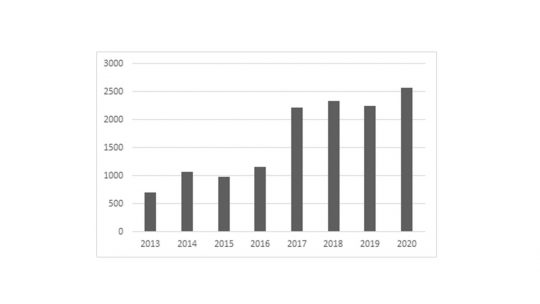
Negev Coexistence Forum for Civil Equality
פורום דו-קיום בנגב לשוויון אזרחי
منتدى التعايش السلمي في النقب من أجل المساواة المدنية
New Report: No shelter in place- home demolitions and its impact on children during the pandemic
14.07.2021
Press Release: New Report from NCF exposes link between State home demolitions and detrimental mental health among Bedouin children
“Losing your home during this pandemic could mean losing your life. The rights to life and adequate housing are intrinsically linked” – Balakrishnan Rajagopal, the UN special rapporteur on the right to adequate housing.
In the midst of a global pandemic, the State of Israel demolished 2,568 structures in the Naqab, representing a rise of 13% in the demolition of structures compared to 2019 (2,241). Despite the instruction of the Attorney General to reduce demolition warrants and police presence in the Naqab, after civil society organizations sent an urgent request to halt demolitions during the pandemic, demolitions continued. Out of the total demolitions, 40% of the structures 2020 were residential. This undoubtedly contributed to the unemployment rates that increased during the pandemic amongst the Bedouin community.
Despite the humanitarian crisis caused by the pandemic, this is the highest number of structures demolished ever recorded in one year in the Arab Bedouin communities. Lack of adequate housing and security have severe impacts on Bedouin children in an acute and irreversible manner, damaging their mental health, security and development.
Demolition of structures in the Naqab Bedouin communities, 2013-2020
During 2020, the State of Israel continued forced evictions to urbanize the indigenous population of the Naqab, actions that systematically violate their human rights. According to NCF’s report, these demolitions are detrimental for the mental health of tens of thousands of Arab Bedouin children living in the unrecognized villages in the Naqab, as there are numerous psychological consequences of eviction, such as emotional collapse, PTSD, anxiety, and depression on both the evictee(s) and their children. Beyond reinforcing collective trauma, the demolition of houses in the Naqab undermines the rights of thousands of children to wellbeing and healthy development, violating several articles in the Convention on the Rights of the Child.
If 1,000 children per year are being forcibly displaced by the State of their birth, this means the State is actively contributing not only to their personal experiences of trauma but also to the enlargement of the cycles of poverty, wherein 79.6% of Arab Bedouin children live below the poverty line. As awful as such policy measures are usually, it is even more reprehensible to see them carried out in the midst of a global pandemic.
Although the government’s coalition agreement includes the recognition of three unrecognized Bedouin villages (Khašim Zannih, Rakhamah and ʿAbdih in the first 45 days) and the presentation of a plan with housing solutions for the Bedouin residents, the policy of eviction continues. In fact, today 14th of July, State authorities arrived in the unrecognized village of Bīr al-Ḥamām to carry out a demolition.
For more information, please contact Elianne Kremer, International Advocacy and Research Director at Negev Coexistence Forum at +972 (0) 53-529-3829 or intl.advocacy@dukium.org


 Youtube
Youtube
 Twitter
Twitter
 Facebook
Facebook